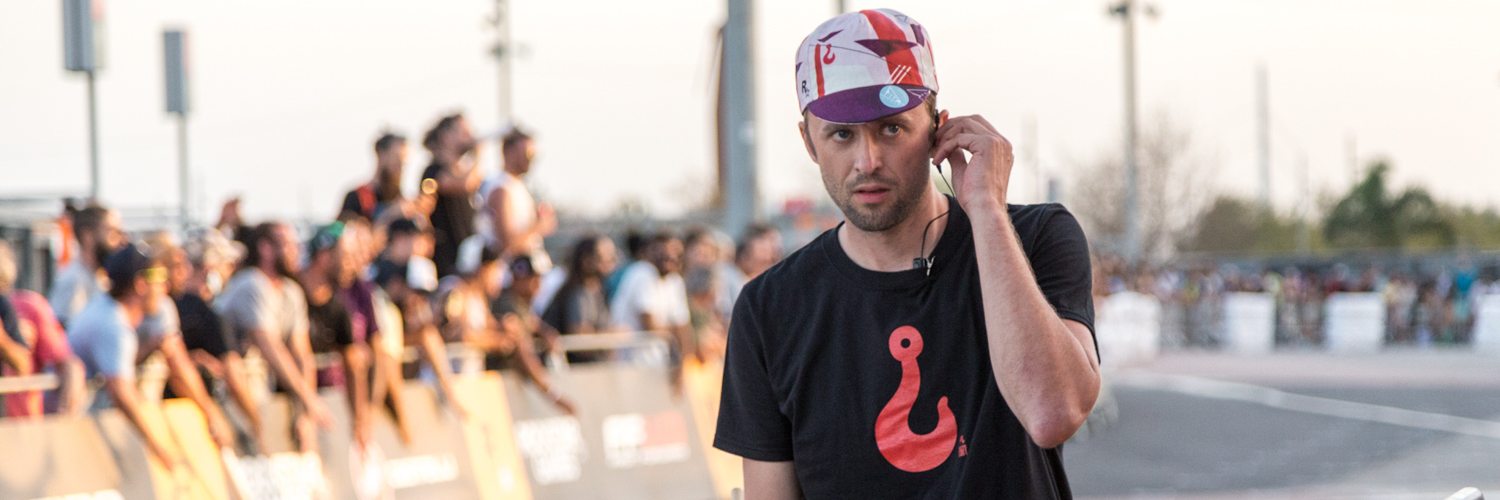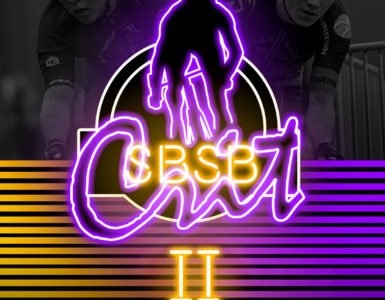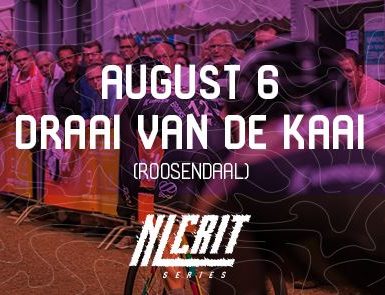David Trimble lives in the Red Hook district, New York City, three blocks away from where it all started. He is the founder and owner of Red Hook Crit, the race series that started as his birthday party race in the Red Hook docks. Within a couple of years, the series evolved into a global cycling series with races in NY, London, Barcelona, and Milan and is supported by several big companies from which Rockstar Games is the main partner. As part of the Trimble family, David is born and raised with bikes all around him. David raced all sorts of bike disciplines, from mountainbike endurance to alley-cats and crit racing. Although endurance disciplines fit him best, he likes the atmosphere at the big crit events most something which he tries to bring to another level with the RHC series. The Trimble family is well known in the world of cycling due to their pioneering in carbon fibre bike frames. One of the Trimble Racing bikes, which also competed in Olympic track cycling in the 90s, is still in competition and ridden by Dutchman Yvo Kinkel. This year, Red Hook Crit had a continuously improving field of riders wherein world-class cyclist Dani King entered the race in London and smashed the field in her RHC debut However, most top road cyclist need more time to adept to the different kind of skill set which is demanded in fixed gear crit racing. Besides the overall success of RHC in 2016, it wasn’t an easy season for the organisation. Incidents, like the Brooklyn crash, and the first EPO case, announced last October, put a lot of pressure on the race organisers. How does David Trimble look back on last season and what can we expect in 2017?
Text: Brian Megens
Photos: Tornanti CC


What is, from outside the crit scene, people’s biggest misconception on RHC?
“Tough question, it depends on where you’re coming from but from the traditional cycling scene, I would say that they only focus on the fact that we ride fixed gear bikes. By doing so, they fail to look at the sportive aspect of it and that what we are doing and building up can be important for the whole cycling scene.”
What’s people’s biggest misconception on RHC from inside the scene?
“I would say that some might get delusional from grandeur … they seem to interpret things different than they really are and underestimate the effort that goes into organising a race. We need to cooperate to make fixed gear racing big, think together and see the bigger picture, unfortunately some don’t see that.” Some people just don’t seem to understand the decisions we make which are all made with the sport as the highest priority in mind.
RHC started in Red Hook Brooklyn as a birthday party race, how did you make it bigger and was it always your intention to do so?
I never had the intention to make it big nor did I ever wanted to become a race organiser. Especially in the first two years, I only started working on the event 2 weeks prior to it. However, people were so enthusiastic about it, and the snowball effect started. Another important factor was that I always wanted to improve each edition, from race to race, and by doing so it grew bigger and is still growing.
Which race in the series is the hardest to organise every year?
They all have their challenges, but I would say that Brooklyn is the hardest due to the location. Another thing is that during the event we already are busy with the preparations for the other races already. In general, January up to April are the most hectic times for the whole RHC crew.
 How do you look back on the RHC series of 2016?
How do you look back on the RHC series of 2016?
I would say it is the best series up to today and also the most professionally produced. I also started working with a team which works full-time on organising the series. The crits became safer, we changed some rules and most worked the way we intended. The race is better than it has ever been in the history of the race. There is more diversity of the competitors and teams and the level is getting higher every year. A lot of different teams and athletes were able to race at the front of the event and more riders than ever were racing the lead lap.
What was your favourite race circuit?
Brooklyn is my favourite, a unique circuit, spectacular location, and that it is only three blocks from where I live makes it extra special.
What was your favourite race (men, women)?
Men: “Barcelona was really exciting, last few laps of the race were incredible bike racing and handling. There were a lot of attacks, then Colin took off at the front, and got chased by Tristan, up to the final corner in the race we didn’t know who was going to take the win. By far, the most exciting moment of the season.”
Women: “Milan was the first time in the history of the series that we had a really aggressive women race. Until then, women races were often conservative, but in Milan everyone was just going full pace, trying to hang in there (…) Like I mean really, from the first to the last place, everyone was pushing themselves extremely hard until the bitter end.”

What was the biggest surprise in the 2016 RHC series (men, women)?
“Honestly, it was not surprising that Colin with Specialized dominated the races. What was surprising is that the elite from the cycling world did not dominate, Cofidis rider Loïc Chetout and World-class 6-day rider Stefan Schäfer come in and don’t immediately have success.”
What was your personal highlight of the RHC 2016 series?
Tristan Uhl getting second in Barcelona was a favourite moment as I have been following him since I saw him in a mountainbike race in 2004 when he was competing in the juniors. Him doing so well on RHC is a great experience. Another is that Ash Duban took the championship despite all the world-class women riders coming in. Her consistency was amazing, she only led one lap in all races but still took the championship. A moment of relief is always the podium ceremony in Milan. The season is over and everyone is partying afterwards. On a social level, the highlight was the entire week in Barcelona, so much comradery among everyone, by far the most social RHC we have ever had. To me, this showed that despite RHC growing bigger, the spirit is growing as well, although some said that the spirit would be lost if we would grow.

How do you look back on the first EPO doping case in RHC?
We have been testing riders for a few years, we weren’t doing it for show like some were thinking but we were serious. We wanted to make sure that the riders were not doping, we are not naïve. Although it sucks that someone from your race is caught, especially such a well-liked rider, overall it is a positive step for the race, prior to this not everyone took our anti-doping policy seriously, but now they know. I learned a lot from the case and think I that the race can take advantage of it in the future. It will have a positive effect for everyone racing clean.
Are there any plans for expanding the RHC series?
Right now we are happy with 4 events, but eventually we like to expand, when we have the proper support and a more experienced team. Right now, 4 races are enough without pushing the team too hard and they are learning too, every race. At least for one year we will stay with 4 events, but if things go the way they are going we will most likely expand.

Can we expect new crit circuits in 2017?
Yes, we are always tweaking the circuit, it is likely that Brooklyn stays the same as I think the circuit is a big success. London and Milano will also stay the same. However, in Barcelona we can design something new every year.
RHC is becoming a well-established series also outside the crit scene, how do you see the future of fixed gear crit racing?
I go from race to race but what I ideally want to see and believe in is that the event has the potential to become the most exciting race format to watch and understand. We need to make it as spectator-friendly as possible. If we do that, and we can get livestreams and tv coverage, it can go up to one of the biggest races in the world. I mean, if people get behind it, it can become even more mainstream than the biggest cycling races out there now in the world.
Why does RHC support FGC?
The situation we had before FGC was that everyone does everything to win a race but then it kind of gets forgotten. We believe that it is important that those results that are achieved after such hard work are being well preserved and openly accessible to everyone. Until now, the history of fixed gear racing, meaning full results, wasn’t shown anywhere central. I hope that this platform will expand people’s knowledge of the sport. The more information people can get to follow the sport, the more people will get interested in it. Our spectators care about all the different characters and athletes in the game and it would be cool if they can get to know more about them.
We thank David for the interview and are looking forward to the upcoming series. For those having David over for a coffee, he prefers good pour over coffee, no milk or sugar.




